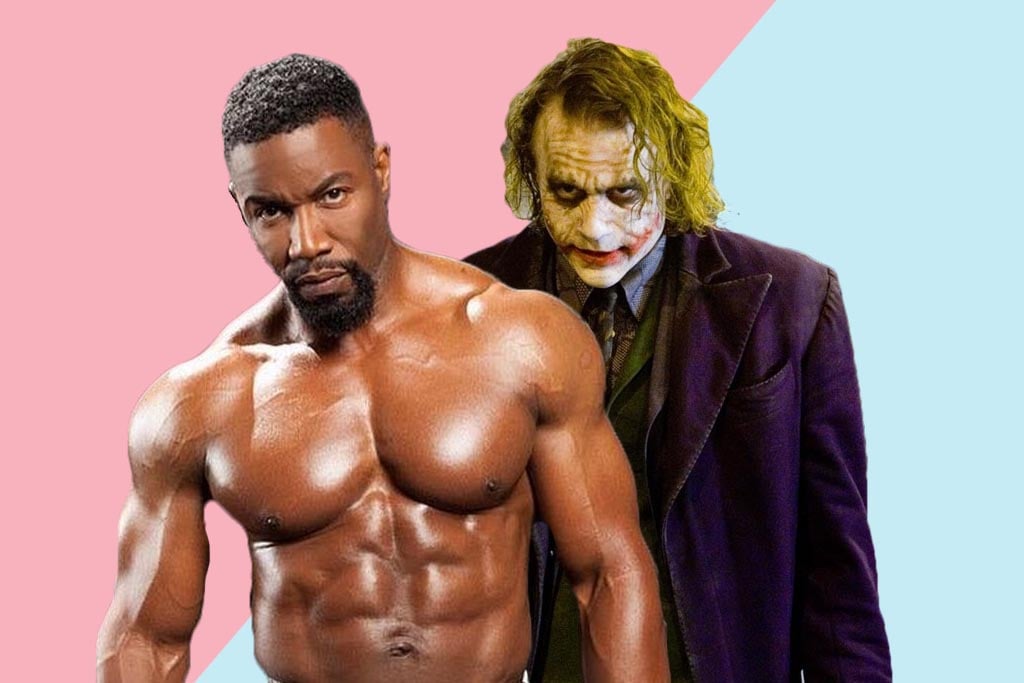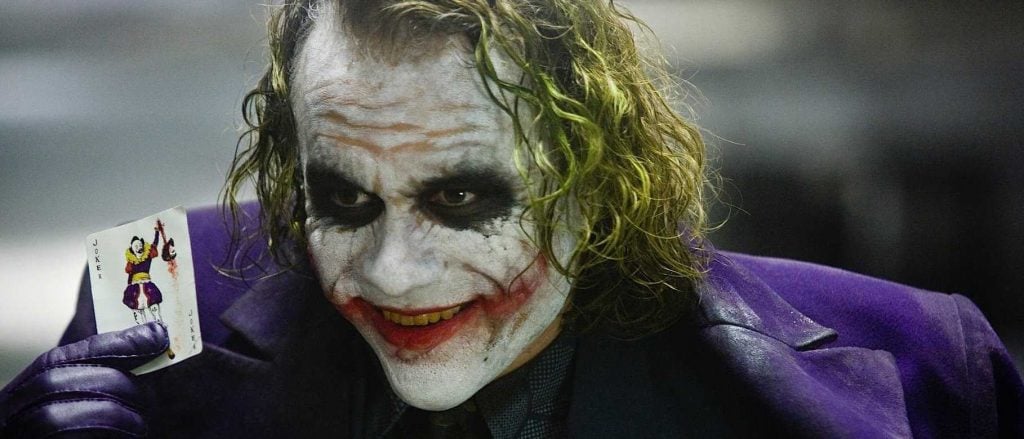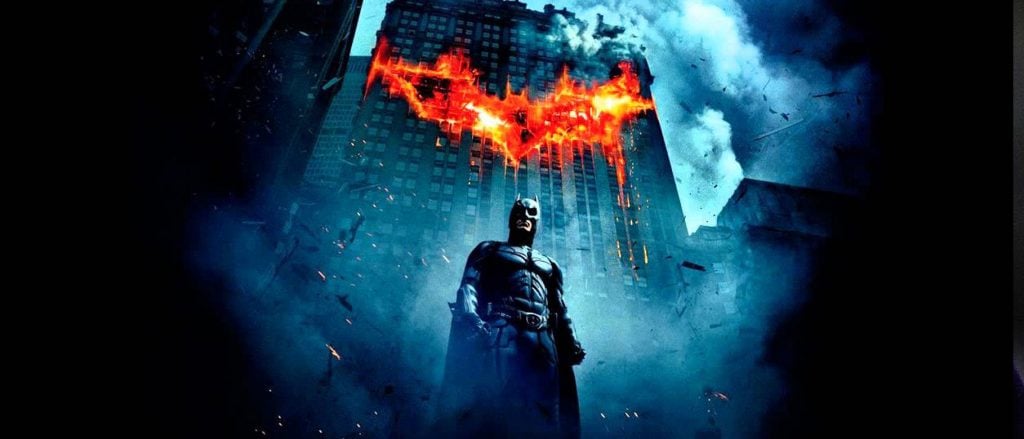Michael Jai White Reflects On The Legacy Of ‘The Dark Knight’ And Heath Ledger’s Joker
"I knew it was a massive movie, but I had no idea it would be that successful.”

When Michael Jai White first signed on to a Batman Begins sequel The Dark Knight, he had “no idea” the superhero flick would go down in film history as one of the greats.
A decade ago, it was a small miracle if a comic book movie was good — let alone great. After all, this was the time of jazz-dancing emo Spider-Man and “I’m the juggernaut, bitch” being an actual line dialogue from an X-Men film. If you didn’t come out of the cinema emotionally scarred after watching Reed Richards perform a two-minute boogie in Fantastic Four, that was considered a victory.
Little did audiences know that by the end of summer 2008, the movie landscape would be irrevocably changed.
Marvel’s first instalment in its now iconic cinematic universe — Iron Man — dropped in May 2008, with a career-saving performance from Robert Downey Jr in a flick that no one expected to be as excellent as it was. Just two months later in July, DC’s call and response was The Dark Knight: a film that surpassed ‘excellent’ and became ‘classic’.
“I had no idea what it would become,” Michael Jai White tells Junkee, having signed on to the movie when its title was just ‘Batman Begins sequel’. “I had my particular part, but you’re not really connected to everything else that’s going on. I knew it was a massive movie, but I had no idea it would be that successful.”
The Making Of Jai White
White had been on big movies before: he was the first African American to play a superhero in a comic book blockbuster, with Spawn in 1997. But like a handful of its peers — Darkman, The Phantom, Tank Girl, The Crow, Blade — Spawn was treated more as a cult film than mainstream hit.
A martial arts expert and stunt choreographer, the 50-year old made a name for himself in the industry by leaning into his area of expertise. As well as parts in action gems like Universal Soldier and Exit Wounds, his massive frame had seen him play Mike Tyson and Muhammad Ali in the lead up to landing The Dark Knight. He was also somewhat of a DC superhero vet, having voiced everyone from Superman villain Doomsday to Green Lantern John Stewart in various animated projects for the company
When he got “offered” the part of Gambol by director Christopher Nolan — “I didn’t audition” — it was a world that White was already very familiar with. A rival gangster to the Joker’s anarchic uprising in the criminal underworld, his role was a tough character in a movie full of tough characters, which he says was part of the appeal.
“The Dark Knight is dark,” he laughs. “There’s certain movies where people can live vicariously through really dark and tough characters. That’s why movies from the Charles Bronson days endure, where you have these iconically great characters.”

Him And Heath
And no character was more iconic or darker than Heath Ledger’s infamous turn as the Joker. All of White’s scenes in The Dark Knight were shared with Ledger, which he said was a coup given that even at 28, the Aussie was “such an established actor”.
“Heath was a really nice guy, he was so generous and open,” says White. “He actually asked my opinion of different takes that he did, which was really unique.”
The scene where the Joker first mutters the phrase “why so serious” was one that relied heavily on the chemistry between Ledger and White. After an earlier encounter where the Joker disposes of one of Gambol’s henchmen with a macabre magic trick, there’s a price on the Batman villain’s head: one that the clown price of crime uses as a way to slip through Gambol’s defences.
On paper it would be hard to believe that Ledger’s sinewy frame could be intimidating to someone of White’s six foot, 100kg stature, so to make the tension palpable it all came down to how they were able to bounce off each other.
“There was this one modulation of his voice that he did where I said to him ‘wow, that is really creepy — I don’t have to act much with that’,” says White.
“When you go to that register, it makes me really wonder where the hell did this guy come from? He said ‘oh, you think so?’. I replied ‘yeah, I like that Heath’. That was the take they used in the movie. He was really playful and really tried experimenting with the way he was doing the character: it was quite fun to watch him do that.”
On camera his character might have been insane, smeared in face paint and dripping with malice, but off camera White says the cast and crew saw a different side of Ledger.
“There were moments when we would cut and the cameras would turn off and he was just clowning around. In actuality, I was kind of an amateur magician at the time and so was he. We would be doing card tricks between takes or trying to show each other sleight of hand techniques.”
From “magic tricks” to skateboarding around on set, Ledger was a unique presence on The Dark Knight and one that couldn’t have been further from the movie’s grim narrative.

The ‘Dark Knight’s Legacy
The Dark Knight became the first superhero movie to truly penetrate on a critical scale. It broke box-office records — a victory for any studio — but it also changed the Academy Awards forever.
When the nominations were announced at the start of 2009 and The Dark Knight wasn’t listed among the best picture nods — despite scoring nominations in nine other categories — there was an uproar so loud the Academy eventually broadened the Oscars main category field. They made it so that anything from five to ten films could be nominated for best picture any given year, in something punters dubbed ‘The Dark Knight effect’.
At the time, legendary film critic Roger Ebert said the film could “redefine the possibilities of the comic book movie”.
Although he didn’t have any sense of the film’s significance during the shoot, White says he’s not surprised by The Dark Knight’s enduring legacy as it comes up to film’s tenth anniversary.
“It was tremendous,” he says of the finished product. “Just the structure of the movie and everything, what Heath did in counter balance to Christian Bale, I mean, those two guys … how could you not watch that over and over? It was a classic kind of pairing.
“Of course Heath played one of the best bad guys ever. Sometimes your movie is as good as the bad guy and that? Well, it was one of the best bad guys ever.”
—
Maria Lewis is a journalist, screenwriter and author of It Came From The Deep and the Who’s Afraid? novel series, available worldwide.
